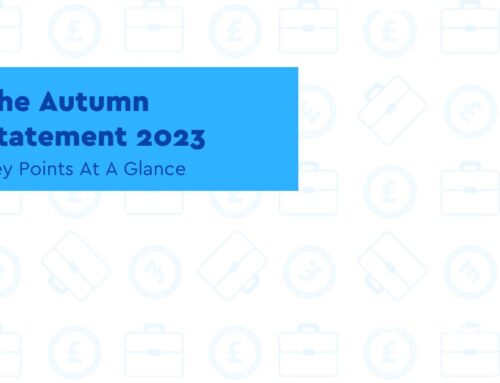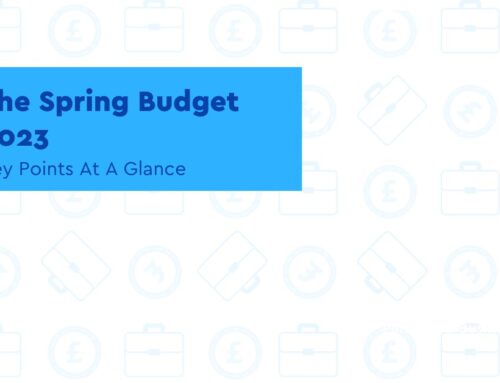News – Business
Chancellor promises tax cuts for businesses
___________________________________
May 19, 2022
Key Points
- Sunak stated that in order to get the tax cuts, businesses needed to ‘invest more, train more and innovate more’
- The Chancellor said: ‘In the Autumn Budget we will cut your taxes to encourage you to do all those things
In a speech to the Confederation of British Industry (CBI) the Chancellor has promised tax cuts for businesses in the Autumn Budget.
The promise, made at the CBI’s annual dinner, was made with the aim to boost investment ahead of the increase in corporation tax from 19% to 25% from April 2023 for company profits over £250,000.
Speaking at The Brewery in Central London the Chancellor stated that in order to get the tax cuts, businesses needed to ‘invest more, train more and innovate more’ as these were areas which Sunak highlighted as the UK’s ‘weaknesses. He added that this was ‘at the centre’ of his economic outlook.
The Chancellor said: ‘In the Autumn Budget we will cut your taxes to encourage you to do all those things. That is the path to higher productivity, higher living standards, and a more prosperous and secure future.’
Sunak mentioned the temporary 50% cut to business rates during the pandemic however added that ‘of course, there’s more to do’. The Chancellor used the speech to thank the CBI for their support during the Covid-19 pandemic and to reassure the CBI of the government’s pro-business history, stating ‘never, ever doubt we are on your side’.
In the Budget last year Sunak said he would increase the UK’s corporation tax from 19% to 25%, which aims to raise around £17bn annually. Small companies will continue to pay the lower 19% rate.
At the same time, the Chancellor also introduced a temporary ‘super-deduction’ for two years which offered a 130% relief on the purchase of equipment which is equivalent to 25p off a company’s tax bill. The move was done to encourage businesses to invest sooner.
The CBI has previously warned about the impact of ending the scheme, stating that capital investment will fall in 2023 as corporation tax rises at the same time. It stated that this will ‘likely send business investment as a share of gross domestic product to the lowest level in the G7’.
In response to the Chancellor’s speech, CBI president Lord Karan Bilimoria also spoke and urged the government to ‘act immediately’ on the cost of living crisis, stating that he is worried by the current trajectory as it will bring businesses ‘the highest tax burden in 70 years’ and ‘will stifle our recovery and growth’.
Bilimoria also urged the Chancellor to help companies to invest by introducing a permanent successor scheme to the super deduction, which he described as a ‘stroke of genius by the Chancellor’ and ‘of the utmost importance’.
He also called on the government to extend a recovery loan scheme to help businesses access finance and eventually create a long-term replacement, and bring forward a UK digital strategy.
The Chancellor closed his speech by stating that the government’s ‘firm plan is to reduce and reform’ business taxes but that businesses needed to their bit too.
Sunak said: ‘I believe our most exciting companies are still to be founded, our most talented people are still to be taught, and our best ideas are still to be discovered.’
This article was derived from Accountancy Daily: https://www.accountancydaily.co/sunak-promises-tax-cuts-businesses
News – Finance
Jump in small businesses planning to raise money through EIS
___________________________________
May 18, 2022
Key Points
- EIS is a tax incentive to encourage private individuals to invest in fast-growing UK businesses
- The scheme aims to encourage investors to support young, innovative companies
The number of small businesses planning to raise money under the government’s flagship Enterprise Investment Scheme (EIS) rose nearly 10% last year from 2,965 in 2019/20 to 3,245 in 2020/21*, says private equity firm Growthdeck.
Growthdeck says that the rise in SMEs looking to raise funds though EIS shows that enthusiasm for equity fundraising among small businesses is growing. As the economic disruption of the pandemic fades, more small businesses are looking to the EIS scheme to accelerate their growth.
EIS is the government’s flagship tax incentive to encourage private individuals to invest in fast-growing UK businesses. The scheme is aimed at high net worth investors, with a limit of £1m investment per year (rising to £2m if backing ‘knowledge-intensive’ companies).
Amy Shrives, head of business development at Growthdeck, says: “EIS fundraising bounced back quickly once the initial shock of the pandemic was out of the way. Small businesses saw the opportunity to benefit from the economic recovery and got back to finding the funds to drive their growth.”
More EIS applications getting rejected – risk HMRC is turning too many down
Growthdeck adds that 295 applications for EIS approval were rejected last year, an increase of 59% on the year before. It says that there is a risk HMRC is becoming too aggressive in turning down EIS applications.
Amy Shrives says: “It’s important that HMRC doesn’t choke off vital funding for SMEs by restricting EIS fundraising. It should operate with a presumption towards saying yes wherever possible.”
“There are already a lot of restrictions in place on EIS applications that businesses see as quite arbitrary – the seven-year age limit on companies applying for funding, for example. It would be good to see the government and HMRC both work to open EIS up to more businesses rather than restrict it.”
* Number of applications for ‘Advance Assurance’ under the Enterprise Investment Scheme. Year end 31 March 2021. Source: HMRC
Background
The Enterprise Investment Scheme (EIS) has supported over 30,000 small businesses, raising £24 billion since it was introduced in 1994. The scheme aims to encourage investors to support young, innovative companies with the potential for high growth. This type of business is key to generating jobs and supporting the UK economy.
The pandemic highlighted the importance of external finance for these businesses, with over 600,000 smaller businesses seeking external funding for the first time. Investor demand is also increasing, with 16% of UK investors looking to back early-stage businesses.
EIS is designed so that your company can raise money to help grow your business. It does this by offering tax reliefs to individual investors who buy new shares in your company.
Under EIS, you can raise up to £5 million each year, and a maximum of £12 million in your company’s lifetime. This also includes amounts received from other venture capital schemes. Your company must receive investment under a venture capital scheme within 7 years of its first commercial sale.
You must follow the scheme rules so that your investors can claim and keep EIS tax reliefs relating to their shares. Tax reliefs will be withheld or withdrawn from your investors if you do not follow the rules for at least 3 years after the investment is made.
What money raised can be used for
The money raised by the new share issue must be used for a qualifying business activity, which is either:
- A qualifying trade
- Preparing to carry out a qualifying trade (which must start within 2 years of the investment)
- Research and development that’s expected to lead to a qualifying trade
The money raised by the new share issue must:
- Be spent within 2 years of the investment, or if later, the date you started trading
- Not be used to buy all or part of another business
- Pose a risk of loss to capital for the investor
- Be used to grow or develop your business
Companies that can use the scheme
Your company can use the scheme if it:
- Has a permanent establishment in the UK
- Is not trading on a recognised stock exchange at the time of the share issue and does not plan to do so
- Does not control another company other than qualifying subsidiaries
- Is not controlled by another company, or does not have more than 50% of its shares owned by another company
- Does not expect to close after completing a project or series of projects
Your company and any qualifying subsidiaries must:
- Not have gross assets worth more than £15 million before any shares are issued, and not more than £16 million immediately afterwards
- Have less than 250 full-time equivalent employees at the time the shares are issued
Your company must carry out a qualifying trade. If you’re part of a group, the majority of the group’s activities must be qualifying trades.
This article was sourced from:
Business Money: https://www.business-money.com/announcements/jump-in-small-businesses-planning-to-raise-money-through-eis/
Gov.uk: https://www.gov.uk/guidance/venture-capital-schemes-apply-for-the-enterprise-investment-scheme
News – Property
Are we nearing the end of the pandemic property market boom?
___________________________________
May 18, 2022
Key Points
- The heat may have already left the market when it comes to new buyer activity
- A fourth consecutive interest rate increase and the likelihood of more to come is expected to dampen buyer demand
For the most part of this year, house price growth has remained in double digits with soaring prices and fierce competition between buyers compounded by low levels of stock.
However, a month on month dip in mortgage approvals has caused many to speculate whether the pandemic property market boom may soon fizzle out.
According to the latest market analysis from specialist property lending experts, Octane Capital, the heat may have already left the market when it comes to new buyer activity, with the volume of mortgages approved on house purchases barely climbing on an annual basis.
The analysis of Bank of England mortgage data shows that there were almost 1.6m mortgage approvals during the last financial year (2021/22) – a 10% increase on the previous year.
894,393 of these came via house purchases, accounting for 57% of all mortgage approvals. But while homebuyers remain by far the most active segment of the market, this level of activity increased by just 1% when compared to the previous financial year (2020/21).
During this initial pandemic year (2020/21), 884,482 mortgages were approved for house purchases, accounting for 62% of total mortgage approvals and climbing by a considerable 11% when compared to the previous year (2019/20).
While the latest level of annual mortgage approvals on house purchases remains at a high, this drastic reduction in the annual rate of growth suggests that the heightened market activity driving the current pandemic property market boom is starting to plateau.
A fourth consecutive interest rate increase and the likelihood of more to come is expected to dampen this buyer demand further as this year goes on, with mortgage approvals via house purchases likely to drop as a result.
In fact, increasing interest rates have spurred a greater level of growth from those being approved for a mortgage when remortgaging their existing property and remortgages accounted for 32% of all mortgage approvals during the last financial year (2021/22) – totalling 501,501.
While this remains a smaller market segment compared to those purchasing a house, the level of homeowners remortgaging climbed by 23% year on year versus the 1% increase of those purchasing a house.
Jonathan Samuels, CEO of Octane Capital, commented: “The level of buyers being approved for a mortgage on a house purchase has continued to climb year on year and remains incredibly high. So in this sense, the property market is still running extremely hot, although it certainly seems to have hit the ceiling with the volume of mortgage approvals for house purchases climbing by just one per cent versus the previous year.
“A hatrick of base rate increases towards the end of the last financial year will have no doubt contributed to this reduction in buyer appetites and, in contrast, we’ve seen a sharp uplift in those remortgaging to secure better rates ahead of any further interest rate hikes.
“With a fourth increase coming so soon in this financial year, there’s a very good chance that the market will now start to deflate, bringing property values back down to earth and returning the market to a state of pre-pandemic normality.”
This article was derived from Property Reporter: https://www.propertyreporter.co.uk/property/are-we-nearing-the-end-of-the-pandemic-property-market-boom.html
News – Economy
What does the high inflation rate mean for small businesses?
___________________________________
May 18, 2022
Key Points
- Wages increase as employees ask to be paid more to compensate for increasing inflation
- Businesses are affected by supply pressures as they pay more to buy materials and products
The Office for National Statistics (ONS) has released the latest inflation figures, announcing that the headline figure rose by 9 per cent in the 12 months to April 2022.
This is the sharpest jump since 1982.
On a monthly basis, inflation rose by 2.5 per cent in April 2022.
In the UK, the ONS measures inflation for everyday items by using the Consumer Prices Index (CPI).
Inflation measures how much prices for goods and services rise over time. But what does inflation mean for small businesses?
What is inflation?
Inflation is a normal feature of the economy. In general, it encourages spending. If prices are expected to rise over time, consumers will purchase goods now rather than wait.
But inflation can be either too low (meaning that consumers put off spending their money with businesses) or too high (meaning that businesses struggle to set prices as demand outstrips supply).
What is the current rate of inflation?
The current rate of inflation is 9 per cent.
You can check the current rate of inflation at the Bank of England. It changes monthly and is based on the Consumer Prices Index (CPI), which tracks the prices of everyday items.
This is called the ‘basket of goods’ and is kept updated with new items. Tinned beans and sports bras have been added in 2022, reflecting changing trends in diets and exercise.
The rising cost of gas, electricity and fuel is heavily contributing to increasing inflation.
The target rate of inflation is 2 per cent. The Bank of England says this is to keep inflation stable and to help “everyone plan for the future”.
If the Bank of England misses the target rate of inflation by more than one percentage point either side, they have to write a letter to the government explaining why.
Why is inflation rising?
inflation has been rising following the coronavirus pandemic and global lockdowns.
As economies opened up last year, people were able to spend their money again. Demand for certain goods and services increased, putting pressure on businesses and supply chains.
What’s more, lots of people decided to change jobs following the pandemic. These shifts in the labour market have led to higher wages, increasing costs for businesses, which eventually get passed on to the consumer.
And in recent months, the war in Ukraine and subsequent sanctions on Russia have led to more pressure on fuel and food prices.
Many EU countries rely on Russia for their oil and gas. With imports banned, they have to source oil and gas from elsewhere, affecting supply.
The ONS notes that the largest upward contributions to the inflation rate in April 2022 came from housing and household services (including gas, electricity and other fuels) and transport (including motor fuels and second-hand cars).
How does inflation affect businesses?
When prices rise, it doesn’t just affect consumers. As mentioned, wages increase as employees ask to be paid more to compensate for increasing inflation (or move jobs altogether).
Businesses are affected by supply pressures as they pay more to buy materials and products. They may have to wait longer until stock becomes available (and then face increased shipping costs and times).
Supply shortages for raw materials like timber can also impact prices. Last year we surveyed tradespeople to find out the impact of surging demand and labour shortages on costs.
You might have already experienced problems with your supply chain, as well as labour shortages if you’re looking for staff.
Consider these steps to tackle inflation:
Audit your prices: A fresh break even analysis could help you work out whether price increases can lead to a better profit margins. But don’t take this decision lightly, as customers may be used to current prices.
Audit your costs: Similarly, take a fresh look at your expenses to see if you can reduce them. Can you cut any inefficiencies? Lean manufacturing principles may help you find ‘waste’ in your current processes.
Come up with new plans and forecasts: As the world changes, your plans may need to change too. Take a look at your business plan to see whether there’s anything that needs updating. You can also create a new cash flow forecast and do a fresh budget.
The Bank of England thinks inflation will keep rising
While the Bank of England’s deputy governor previously said that “inflation may still prove temporary”, according to The Telegraph, the central bank now believes inflation will hit 10 per cent this year and go down next year.
This is because of the war in Ukraine as well as current lockdowns in China, making it difficult to import some items to the UK.
Simply Business’s UK CEO, Alan Thomas, said: “High inflation is squeezing small business owners while many are still in a crucial recovery period. The eye-watering cost of Covid-19 for SME owners, including lost work, earnings and loan repayments, now sits at a total of £109.6 billion according to one of our recent surveys.
“One in six also believe they will never recover financially from the pandemic. As a result, two in five (46%) SMEs are calling for long-lasting financial support from the government to help them get back on their feet after Covid-19.”
This article was derived from Simply Business: https://www.simplybusiness.co.uk/knowledge/articles/2022/05/what-is-inflation/
Latest Snippets
HMRC clarify DIY Housebuilder Scheme claim process
HMRC has issued a brief clarifying its position on making a claim under the DIY Housebuilders Scheme.
The brief concerns those constructing their own homes or converting non-residential buildings into their own homes.
The Scheme allows private persons to reclaim VAT on the cost of building materials when constructing their own homes, putting them in a similar position to developers. Under the DIY Scheme, housebuilders can submit a single claim within three months of completion. HMRC policy is that only a single claim is allowed under the scheme.
As a result of a recent court case, HMRC has changed its policy and has confirmed that where it is agreed that a claim has been repaid in error, the tax authority will accept a subsequent claim with evidence that the claim has been made within three months of completion.
Pension regulator running spot checks on UK employers
The Pensions Regulator (TPR) is cracking down on pension non-compliance.
With the removal of covid restrictions earlier this year, full scale inspections have returned to ensure employers are compliant. These spot-check inspections will take place on-site for any employer TPR chooses to inspect all over the UK.
The majority of employers visited by TPR are those which have failed to make the correct pensions contributions for their staff.
Employers who are found to be non-compliant will face financial consequences, and TPR may work with them to assist them with their duties.
Get In Touch
At Morgan Reach, we understand every business needs a little help now and again-especially when it comes to the financial side of things. Therefore, to help our clients and visitors we endeavour to cover as much of the business news as possible. If you are self-employed or run a business and need assistance and advice on how these news could make a difference to you or your business, feel free to get in touch with the experts at Morgan Reach. Our business growth experts at Morgan Reach will guide you through what support is available for you or your business as well as the latest news that may affect you.







